Conservation is Always in Session
March 01, 2019
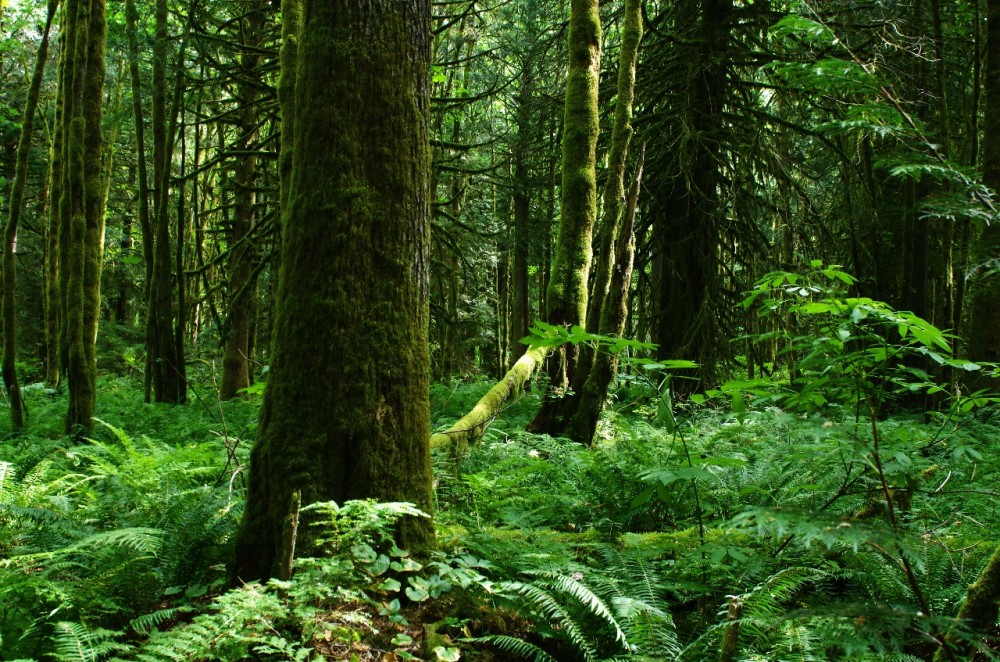 We value stewardship of our remarkable 165 ha ecological reserve.
We value stewardship of our remarkable 165 ha ecological reserve.
Together with conservation partners, Cheakamus Centre strives to protect the diverse natural communities that benefit a variety of wildlife species. Responsible stewardship requires thoughtful management. The maintenance, restoration, and enhancement of habitat; and achieving a balance between interaction and protection on the site remain a key priority for us.
Cheakamus Centre has held a conservation covenant with Nature Conservancy of Canada since 1996.
A conservation agreement (sometimes called a conservation easement, covenant or servitude) is a voluntary, legal agreement between a landowner and conservation organization or government agency that permanently limits uses of the land to protect its conservation values.
It protects our lush coastal forest, critical habitat for thousands of spawning salmon and overwintering populations of bald eagles, and some of the oldest western redcedars in BC. “Covenant,” from the French word "covenir," means to come together.
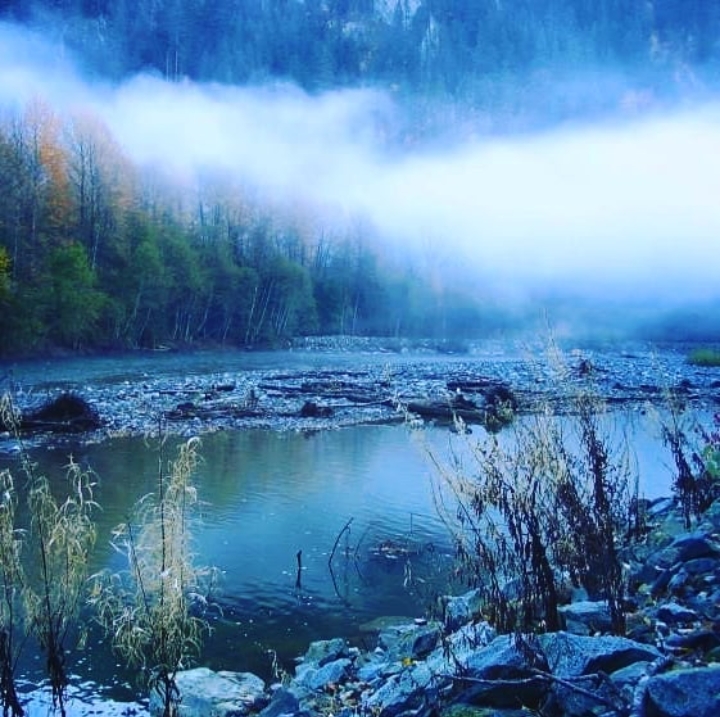 And that we do in our shared commitment to responsible stewardship of this extraordinary ecological reserve.
And that we do in our shared commitment to responsible stewardship of this extraordinary ecological reserve.
Cheakamus Centre, Fisheries and Oceans Canada (DFO) and various partners such as, Bridge Coastal Restoration (BC Hydro), Squamish River Watershed Society and Sḵwx̱wú7mesh Úxwumixw (Squamish Nation) have been working together since 1981 to restore historic salmon habitat throughout the property. These projects are part of a large, multi-phased initiative to restore the side channel habitats of the Cheakamus River which provide secure refuges for salmon from the winter floods common on the Cheakamus River. These restored habitats support thousands of spawning chum, coho, pink, chinook, steelhead and sockeye salmon each season. This biologically rich portion of the watershed called "Paradise Valley" provides critically important habitat for overwintering populations of bald eagles which depend on the salmon for a food supply.
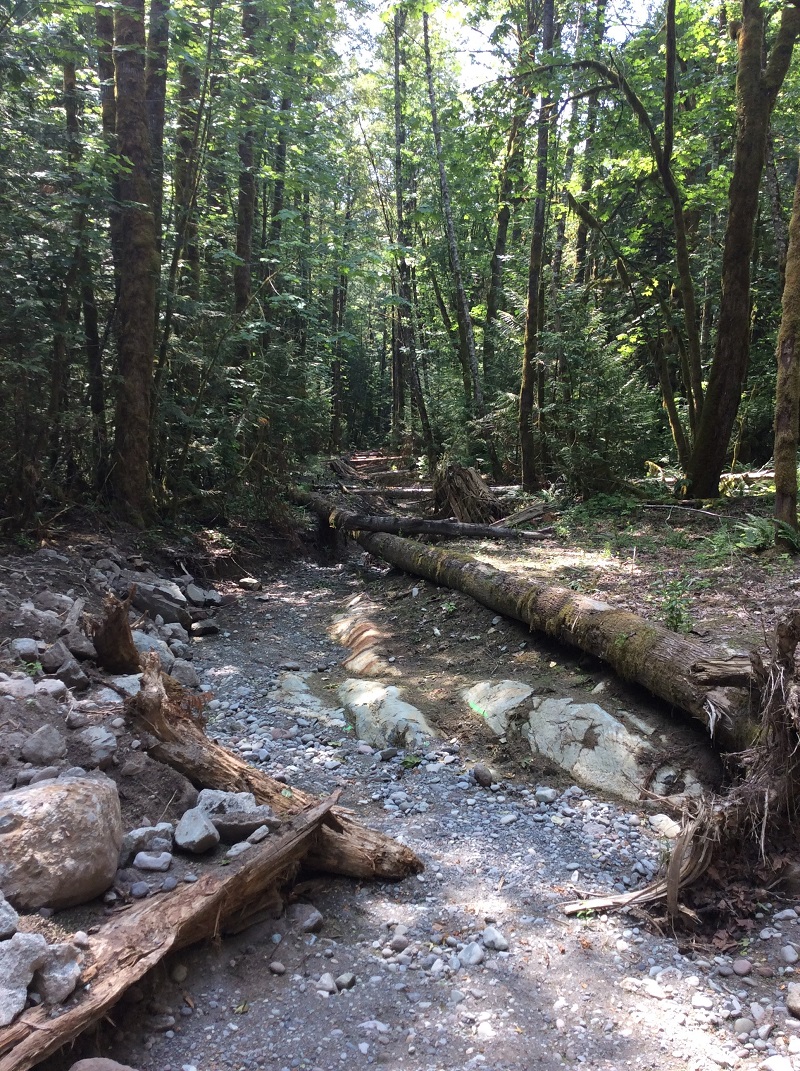
As a result of these successful partnerships, Cheakamus Centre now has the most restored side-channels in the Squamish Watershed.
The great numbers of salmon presently spawning on our property are the result of over three decades of combined efforts to rebuild and restore salmon habitat.
Dave Marshall was a respected Fisheries Biologist who was responsible for many of the salmon spawning channels that exist today at Cheakamus Centre. The concept of the groundwater spawning channel was pioneered by Dave Marshall and engineer Rheal Finnigan of the federal Salmonid Enhancement Program.
The first groundwater salmon spawning channel, the Upper Paradise channel, was created along the Cheakamus River in 1982. Since that time further salmon spawning and rearing habitats have been developed in the Paradise Valley, with many located on our vast reserve.
The salmon reserve features restored habitats that fall into three broad categories. Each of these types of habitat is used somewhat differently by the various species of salmon. Winter or summer, these habitats have a steady flow of clean groundwater. Spawning chum salmon use these habitats extensively, as do spawning coho salmon. The various pond complexes at Cheakamus Centre provide good habitat for young coho salmon during their first summer of life. Ponds are also considered critical habitat in the winter for young coho salmon which seek out their deep quiet waters as a refuge from the winter storms in the Cheakamus River.
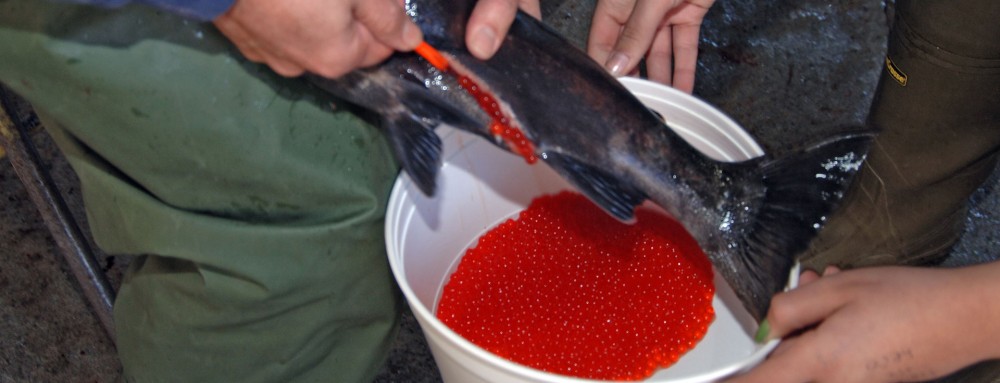
These diverse habitats support over 40,000 chum, coho, pink, chinook and steelhead salmon which return to spawn at Cheakamus Centre from August to February annually.
By early winter the eagles increase their presence, arriving for their winter feast of the spawned out salmon within the reserve which is further protected by Nature Conservancy of Canada environmental covenant.
This intricate cycle of life and death continues in part because of the many dedicated people that have ensured salmon will always have a place at Cheakamus Centre.
It is Dave's legacy to the children of today, that they respect the environment, honour the salmon and pursue with passion their own life's calling.
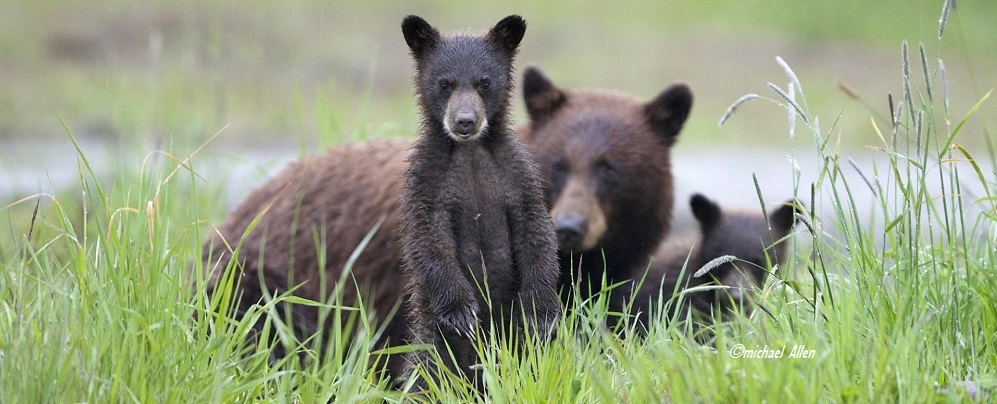
Another dedicated conservation steward is bear expert Michael Allen who reviews the corridor’s, more specifically Whistler’s, black bear population. Michael Allen has over 30 years of experience studying Whistler's bears and their abundance and survival in comparison to black bears in the backcountry, as well as nocturnal habits of salmon use in Squamish rivers. Michael Allen presents a detailed and unique picture of our most charismatic omnivores in his Bear Reports.
"One of the most important and progressive education centres in existence, and its diverse and unique curriculum is the envy of many."
~Rob Bell-Irving, Community Advisor, DFO
Contributed by Cheakamus Centre staff: Communications and Marketing Manager, Sepideh Tazzman

